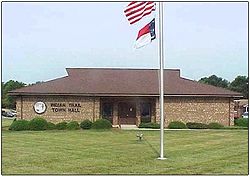Guardianships
A court appointed Guardian may be necessary when an individual lacks sufficient capacity to manage his or her own affairs, or is unable to make or communicate important decisions.
Whether a person is legally incompetent and requires a Guardian is determined by the court. The proceeding is called an incompetency hearing and the person bringing the matter before the court is called the Petitioner.
After careful consideration of all the evidence, the court will evaluate whether an individual possesses the legal capacity to make important decisions concerning his or her person, family, or property. The court will consider whether the lack of capacity is due to mental illness, dementia, other mental impairment, epilepsy, cerebral palsy, autism, inebriety, senility, disease, injury or another similar cause or condition.
Incompetency of an individual must be proven to the court by clear, cogent, and convincing evidence. This is an arduous burden that requires substantial evidence including medical records and opinions. The burden of proof is on the person bringing the incompetency matter before the court.
If an individual is legally incompetent the court will appoint one or more Guardians. The court may appoint an attorney and/or family member as Guardian. There are several different types of Guardianships. The court will determine which types of Guardianship, if any, are necessary depending on all the facts and circumstances.
Types of Guardians
Guardian of the Estate: Manages all assets, property, and business affairs of the incompetent; and files Annual Accountings of all finances and assets to the court.
Guardian of the Person: Performs duties relating to care, custody, and control of an incompetent person including, but not limited to medical care, food, shelter, and clothing.
Limited Guardian: Provides limited involvement to preserve certain individual rights and responsibilities.
General Guardian: Includes a Guardian of the Estate and a Guardian of the Person.
The Guardian has a responsibility and duty of loyalty to act only in the best interest of the incompetent individual.
A court appointed Guardian may be reimbursed for reasonable expenses incurred while carrying out his or her duties as Guardian. Additionally, a court appointed Guardian may receive a commission for serving as Guardian. However, all reimbursements and commissions are subject to court approval. A Guardianship terminates upon the death of the incompetent individual or when the individual’s competence is restored by the court.
Our Guardianship Law attorneys at Danica Little Law, PLLC serve clients in Charlotte, Southpark, Ballantyne, Waxhaw, Huntersville, Lake Norman, Mooresville, Concord, Gastonia, Belmont and other areas in Mecklenburg County, Union County, Cabarrus County, Iredell County, Gaston County, and in North Carolina and South Carolina.










































